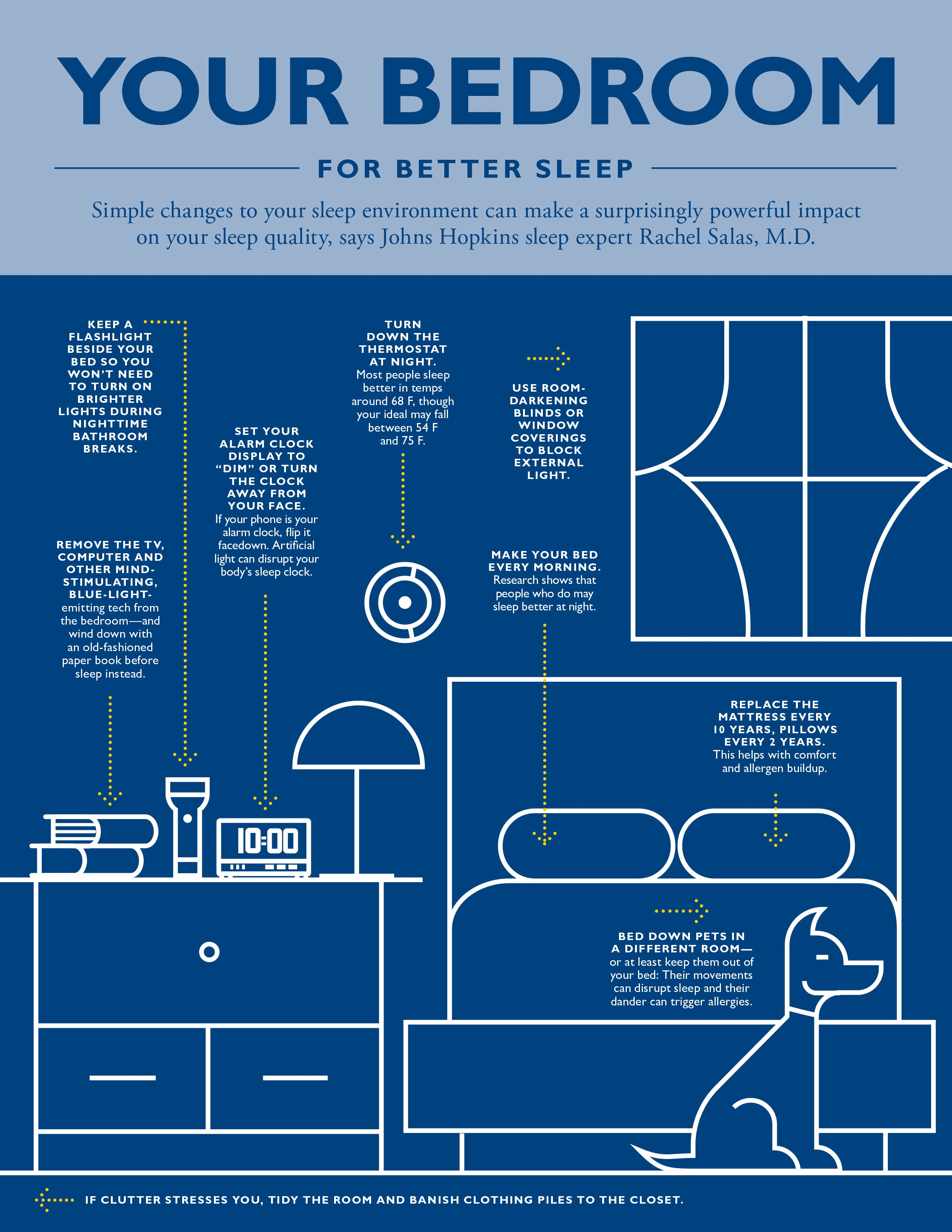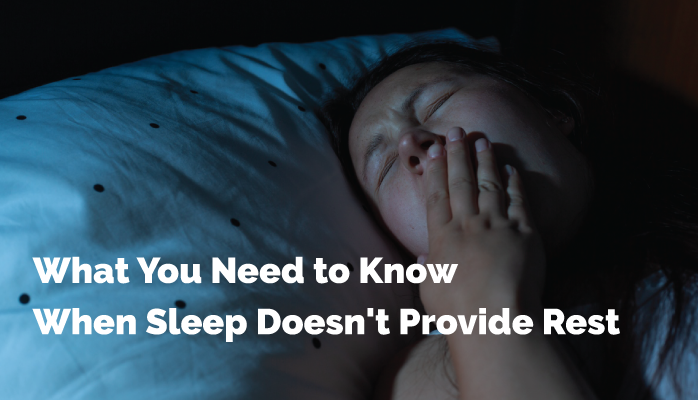Do you ever find yourself waking up exhausted? You feel like you slept through the night, yet you don't have that rejuvenated feeling and you know it's going to be a long day before your feet even hit the floor. The first thing you should know is that this isn't normal. After 8-10 hours of sleep, your body should have had time to repair tissues, digest food, and rest your brain for another day. If this isn't happening, and your body can't complete these tasks, then there may be something else going on preventing you from getting adequate sleep. Continue reading to learn more about common causes of waking up exhausted!
The Stages of Normal Sleep
Normal sleep patterns involve several stages. The first stage of sleep is when your eyes are closed, and you're resting, but you can still hear and carry on a conversation. You enter the second stage of sleep when you start to doze off into a light sleep, but you can still be easily awakened. The third and fourth stages of sleep are deep sleep, which is essential for you to feel rested. This is when your brain is in "delta-wave" sleep, and your body is paralyzed. Your body uses this time to make its repairs and adjustments for the next day. As you come out of those stages of sleep, you will enter REM sleep or rapid eye movement. This is when dreams happen, and your mind is active, but you are still asleep.
If you wake up feeling rejuvenated, then you have cycled through all stages at least four or five times. However, if you're not waking up feeling rejuvenated, then something is wrong, and you may not have cycled through all the cycles or may not have completed enough cycles in your sleep. Without that feeling of rejuvenation, you may find your days less enjoyable, and you may experience the following issues:
-
Mood swings
-
Poor task performance
-
Less motivation to accomplish goals
-
Struggling social life
-
Reduced sex drive
If you find yourself having many days of the above symptoms, then it is time to try and find the root of your sleeplessness, especially if you feel as if you are sleeping for at least 7 hours a night, but still don't feel like it. The stem of your restless sleep may be due to:
-
Medical causes or chronic tiredness
-
Sleep disorders
-
Lifestyle or behavior causes
-
Poor sleeping environment
Medical Causes of Chronic Tiredness
There are common medical diagnoses that can make sleeping restfully difficult. These include:
-
Hypothyroidism
-
Hormone fluctuations
-
Diabetes
-
Anemia
-
Heart Disease
-
Chronic illness
These medical conditions involve the imbalance of important nutrients and cells in your body, which can negatively impact your energy levels. So, regardless of how long you sleep, you still feel tired because your levels are off. If you have been diagnosed or are concerned that you have one of these conditions, it's essential to see your doctor to determine how to better manage these conditions so they don't impact your sleep.
Sleep Disorders That Cause Chronic Fatigue
Sleep Apnea
Sleep apnea is a sleep disorder and medical condition that causes you to repeatedly stop breathing throughout the night, anywhere from 40 to 100 times or more per night. There are two types, obstructive and central. Obstructive sleep apnea means something is blocking your airways, making it difficult for you to continue breathing. Risk factors for obstructive sleep apnea are obesity, large neck circumference, tobacco use, age, and gender, to name a few.
Central sleep apnea means there is an issue in your brain with signals that instruct your body to breathe. It will be necessary to find a sleep clinic to test if you have either type of sleep apnea.
However, sleep apnea can cause restless sleep by causing the following events throughout the night:
- Being awakened by your bed partner who hears you repeatedly stop breathing
- Loud, chronic snoring that wakes you up
- Being awakened by choking or gasping
These events can cause you to:
- Wake up exhausted in the morning
- Wake up with headaches
- Experience mood disruptions, such as constant irritability, brain fog, etc.
Parasomnias
During sleep stages three and four, when you are supposed to be getting your best rest, your body should go into paralysis. However, sometimes, this doesn't happen and we experience parasomnias. Parasomnias are disruptive sleep behaviors that involve movement and other abnormal phenomena throughout the night that can interfere with your circadian rhythm, thus leading you to feel unrested. Parasomnias are often not recalled the next morning, leaving individuals exhausted with no idea why. They include the following behaviors:
-
Restless leg syndrome
-
Sleepwalking
-
Night terrors
-
Chronic nightmares
If you have been told you do any of the above behaviors, and you wake up feeling unrested, it may be time to find a sleep clinic and start working towards a solution to help you.
Lifestyle causes of restless sleep
Finally, there are numerous lifestyle and emotion-related causes of sleep deprivation from lack of sleep quality. Here are a few examples:
-
Drinking alcohol, although helping you sleep, interrupts regular sleep cycles so you don't experience all of them required for rejuvenation.
-
Poor diet/malnutrition
-
Allergies
-
Clinical depression/anxiety
-
Post-Traumatic Stress Disorder
-
Shift Work
Poor sleep environment
Sleeping is very much a mental activity that sometimes takes coaching and conditioning to achieve. That is why it is so important that you only use your bed for sleep and sex so your body associates the bed with time to do one of those activities. If you work in your bed, or just hang out without intentions on going to sleep, this can cause confusion and associations with the bed and wakefulness. The below is a great starting place for how to create an optimal environment for sleep.

Sleep deprivation, despite good length of sleep, isn’t always the product of a sleeping disorder. Your sleep quality might also be impacted by:
-
Lack of ideal sleeping environment
-
Adjustments to shift work that interferes with natural nighttime sleeping patterns.
-
Stress/anxiety
-
Too much “screen time”
Any of the above can cause lower quality sleep, regardless of the quantity of sleep.
If you are living in Anchorage and struggle with chronic fatigue or tiredness during the daytime, contact us by clicking the orange button below to take a free online sleep test.


